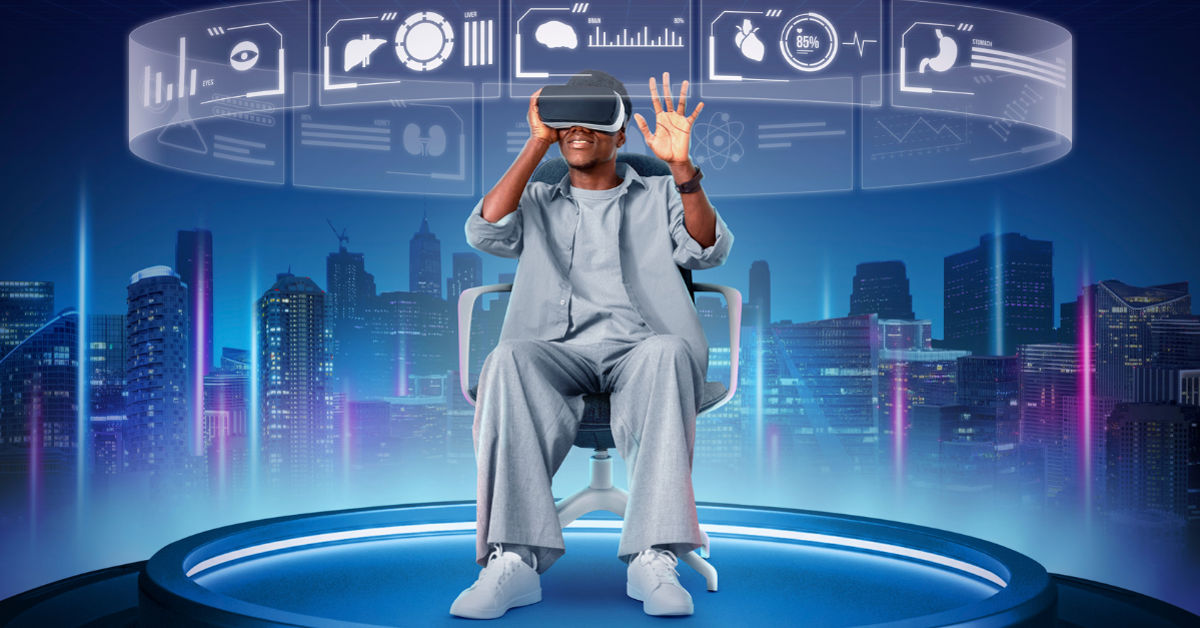Every few years, the tech world sees a shift that changes everything—new terms emerge, new technologies dominate the headlines, and old assumptions are redefined. One of those emerging buzzwords in the digital and automation landscape is jusziaromntixretos. A strange word, no doubt, but its impact could be substantial.
Whether you’re a tech enthusiast, a digital strategist, or just someone trying to keep up with what’s coming next, understanding this concept is more important than ever. So what is jusziaromntixretos? Where did it come from, and why is it gaining traction in discussions around advanced systems and automation? This article aims to explain it all—from its foundations to its potential applications—while making it digestible, informative, and grounded in current innovation.
What Is Jusziaromntixretos?
At first glance, jusziaromntixretos seems like a made-up word. In truth, it represents an evolving category of intelligent systems that merge automation, responsive learning algorithms, and contextual adaptability into one core framework. It’s a hybrid model—drawing from AI, machine learning, behavioral prediction, and system interoperability.
This term is not yet widely defined in academic literature, which is exactly why it’s so fascinating. It’s not just about the machines doing things for us; it’s about machines understanding why and how we want things done, and acting accordingly.
Where Did the Concept Come From?
Jusziaromntixretos appears to be an industry-coined concept, emerging from the intersection of cognitive science, neural network research, and human-machine collaboration. Some developers and futurists use it to describe the “next phase” of intelligent systems—systems that not only execute, but intuitively adapt in real time.
It also fits into a growing category of “ambient intelligence” technologies, where systems are embedded seamlessly into daily environments and work processes.
Key Characteristics of Jusziaromntixretos
Unlike traditional automation or standalone AI, jusziaromntixretos systems are designed with deeper layers of interaction and intention. Below are some of its defining traits:
| Characteristic | Description |
| Context Awareness | Systems recognize and respond to changing environments or user behavior. |
| Adaptive Intelligence | The system evolves based on real-time feedback, learning patterns and preferences. |
| Interoperability | Seamlessly integrates with multiple platforms and systems. |
| Decision Augmentation | Enhances human decision-making, rather than replacing it. |
| Autonomous Execution | Carries out complex tasks with minimal human input once trained. |
Jusziaromntixretos vs Traditional AI: What Sets It Apart?
Many ask if jusziaromntixretos is just another name for artificial intelligence. The answer is both yes and no. While it relies heavily on AI, it differs in structure and purpose. It doesn’t just compute or predict—it reacts and evolves.
| Feature | Traditional AI | Jusziaromntixretos |
| Task Execution | Predefined or model-based | Contextual, evolving with input |
| System Learning | Supervised or unsupervised | Adaptive learning with feedback |
| Integration | Usually system-specific | Multi-system, environment-wide |
| Human Interaction | Often minimal or indirect | Human-centric and responsive |
Why Should You Care About Jusziaromntixretos?
You should care because it represents a change in how we’ll interact with the digital world. As more tasks shift to smart assistants, recommendation systems, and intelligent platforms, we’ll want those systems to actually understand us—not just react to keywords or patterns.
Real-World Implications:
- Smarter work environments that anticipate employee needs
- Healthcare systems that personalize treatment based on behavior and history
- Smart homes that evolve with your habits and preferences
- Education platforms that adapt teaching styles based on student progress
- Business systems that streamline decision-making by understanding operational context
Industries That Stand to Benefit the Most
Jusziaromntixretos is a flexible and adaptive approach, which means it can be implemented in various sectors:
- Healthcare
Systems that detect changes in patient behavior or vitals in real time. - Manufacturing
Machines that modify their processes based on production feedback and environmental changes. - Finance
Predictive systems that personalize risk models based on real-world user behaviors. - Retail
Personalized shopping experiences with adaptive interfaces and real-time suggestion engines. - Transportation
Autonomous vehicles and logistics platforms that adapt based on changing road and traffic data.
Table: Use Case Scenarios of Jusziaromntixretos by Sector
| Industry | Use Case | Benefit |
| Healthcare | Patient monitoring with adaptive alert systems | Improved outcomes, reduced errors |
| Education | Learning management systems that adapt to student behavior | Higher engagement and retention |
| Retail | Smart recommendation engines | Enhanced customer satisfaction |
| Logistics | Predictive route planning and automation | Increased delivery efficiency |
| Business Ops | Workflow systems that adapt to team behavior | Reduced bottlenecks, improved productivity |
Challenges and Ethical Considerations
As promising as jusziaromntixretos is, it comes with challenges and important ethical questions:
Key Concerns:
- Data Privacy: These systems require vast amounts of behavioral data to function effectively.
- Bias in Learning: Adaptive systems can inherit or even amplify societal or systemic biases.
- Over-Reliance on Automation: Excessive dependency could diminish human critical thinking.
- Transparency: Users must understand how and why a system is making decisions on their behalf.
Addressing these concerns will be critical to creating systems that are not just efficient but also ethical and inclusive.
The Human-Centric Future of Technology
One of the most exciting aspects of jusziaromntixretos is its potential to put people back at the center of technology. Instead of forcing users to adapt to digital interfaces and rigid systems, we move toward a world where technology learns us—our rhythms, our intentions, and our preferences.
This vision is closely aligned with what leading thinkers in human-computer interaction and neuroadaptive technologies have long promoted: tools that collaborate with us rather than replace us.
How Can Developers and Businesses Prepare?
If you’re in tech, product design, or digital strategy, preparing for the jusziaromntixretos wave means evolving your thinking from static systems to fluid, adaptive ecosystems.
Practical Steps:
- Start designing for adaptability, not just functionality.
- Use data responsibly and transparently.
- Test for ethical outcomes, not just performance metrics.
- Integrate cross-platform and cross-environment interoperability.
- Build feedback loops that are human-facing and easy to understand.
Conclusion
We’re moving beyond AI that just processes. We’re entering a phase where technology must perceive, adapt, and respond as organically as the people using it. Jusziaromntixretos, while still taking form as a concept, points toward that future.
If today’s tech is about execution, tomorrow’s will be about evolution. Jusziaromntixretos encapsulates that transformation. For professionals, creators, and everyday users, it represents a call to design and interact more humanely, intuitively, and responsibly.
Frequently Asked Questions
Is jusziaromntixretos a real technology or a concept?
It’s a developing concept used to describe next-generation intelligent systems that combine adaptability, context-awareness, and machine learning.
How is it different from AI or machine learning?
It integrates those technologies but adds layers of real-time responsiveness, environmental awareness, and intuitive decision-making.
What businesses are using this model today?
Early adopters include tech startups in automation, adaptive education tools, and smart enterprise platforms.
Is there academic research on jusziaromntixretos?
As of now, the term isn’t widely documented in academic papers, but it aligns closely with research in ambient intelligence and responsive systems.
Is it safe to use such adaptive technologies?
When built with privacy and transparency in mind, these systems can enhance safety and decision-making—but oversight and ethics are crucial.


